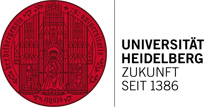Research alumni work is now well established
The research alumni programmes that were launched at the beginning of the decade have now become an integral part of operations at German universities and research institutions. Many universities with a strong research profile are using international visiting scientists’ potential as ‘bridge builders’ and have launched and professionalised appropriate programmes. In this way, research alumni have become an important part of the international marketing strategy promoting Germany as a research location: the German host institutions offer their research alumni programmes that are tailored to their specific needs and qualifications, and in turn the alumni help strengthen the institutions’ international profile, and thereby their global competitiveness. The concepts submitted by Heidelberg University in the Humboldt Foundation’s ideas competition and in subsequent calls for proposals won several prizes and have since been adopted by other institutions, making the University a pioneer of successful research alumni work.
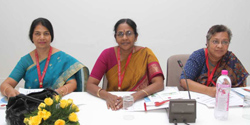
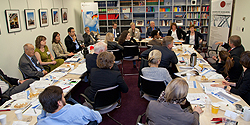
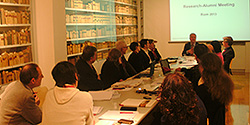
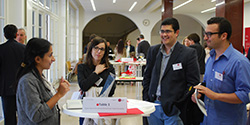
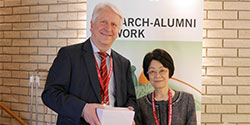
Research alumni programmes are based on the premise that international scientists who have done research in Germany and then continued their career in another country can function as multipliers, thanks to their intimate knowledge of the German research environment. As ambassadors of their German host institutions, they can advise both experienced colleagues and junior scientists on the benefits of a research stay in Germany. By enlisting the help of their visiting scientists, colleges and universities gain leverage in the implementation of their internationalisation strategies: research alumni can help them build networks and strategic partnerships with international institutions and recruit top-class personnel. Special programmes at universities that are geared to the needs of research alumni create a win-win situation for both sides.
The Alexander von Humboldt Foundation – which, over the past 60-odd years, has itself established a worldwide interdisciplinary network of outstanding scientists promoting Germany as a research location – began to support research alumni work at German colleges and universities in 2011. Under the umbrella of the cooperative ‘International Research Marketing’ project funded by the Federal Ministry of Research and Technology, the foundation organised several ideas and strategy competitions to help promote the establishment, consolidation and continued development of research alumni work at numerous institutions. A total of 36 universities and research establishments successfully participated in the foundation’s calls for the submission of research alumni strategies.
At the start of the programme, Heidelberg University was one of three winners of the ideas competition ‘Research Alumni of German Universities’. Its concept outlining the support and involvement of current and former visiting scientists was chosen as a best practice model for a particularly active and lasting cooperation with international research alumni and awarded funding in the amount of 130,000 euros. In 2014 Heidelberg University was once again successful in the ‘Research Alumni Strategies’ competition: its idea to involve visiting scientists from their very first stay and recruit suitable research alumni as ‘Research Ambassadors’ was hailed as a particularly promising sustainability strategy and rewarded with 30,000 euros. In the last round of proposals in 2017, the University was awarded another 40,000 euros for the organisation of a research alumni meeting in Kyoto, Japan, with the aim of launching and extending the local alumni network. Thanks to these funds, Heidelberg University has been able, since 2011, to hold four international network meetings abroad, launch a fellowship programme that offers alumni a brief research stay in Heidelberg and set up the ‘Research Ambassador Network’, among other things. The network meetings took place in New Delhi (2012), Boston (2012), Rome (2013) and Kyoto (2018) to reflect the focal regions of the University’s research alumni work – India, Italy, the USA and East Asia.
The momentum that was created by the ideas competitions of the Humboldt Foundation has considerably boosted cooperation between German universities and research institutions and their research alumni. After the end of its funding programme, the foundation sent a questionnaire to 88 research universities to gauge the effect of its financial support. Roughly 60 per cent of the surveyed institutions – among them many colleges and universities with more than 25,000 students – stated that research alumni programmes had become more important for them over the past five years. One in ten universities with a strong research profile now has an advanced research alumni programme, and another 14 per cent have implemented at least some aspects of research alumni work on a high level. About one-third of the surveyed colleges and universities consider the involvement of research alumni in strategic tasks to be an important part of their internationalisation efforts.
The size of a university has great impact on the strategic tasks with which the university entrusts its research alumni: at 33 per cent, larger universities make better use of their research alumni’s potential as internationalisation advisers than medium-sized institutions (20 per cent). On the other hand, the procurement of contacts for cooperative research projects is much more relevant to mid-sized universities (80 per cent) than to large ones (33 per cent). More than three-quarters of universities with a central research alumni programme are experiencing positive effects from their intensified contact with research alumni, and most also notice an increased interest in the subject within the university.
For their part, research alumni are also increasingly seeing advantages in maintaining close ties with their host institutions: 67 per cent of universities with a central research alumni programme rate the willingness of former visiting scientists to get involved in strategic tasks as ‘very high’ or ‘fairly high’. Fellowships for a brief return to the former host institution, such as those offered by Heidelberg University, are particularly popular among research alumni. By now 73 per cent of the surveyed universities with a central research alumni programme are awarding such fellowships. Special events geared exclusively towards research alumni are also enjoying great popularity: 73 per cent of the surveyed universities with a central research alumni programme are following the example of Heidelberg University’s network meetings and organising events that allow their alumni to meet and exchange ideas face to face.
Looking to the future, research alumni work will continue to be an important undertaking that can offer considerable benefits to colleges and universities. That is why, in the coming years, most of the institutions that are not yet engaged in research alumni work, or do not yet have adequate central structures in place, are planning to launch appropriate activities or extend existing ones – the latter is also true for most universities with a central programme. ‘We, too, will carry on with our established activities and continue to extend our research alumni network. The cooperation with our research alumni has been a great asset for the worldwide Heidelberg network and opened up new possibilities for our University’, says HAI director Silke Rodenberg.
